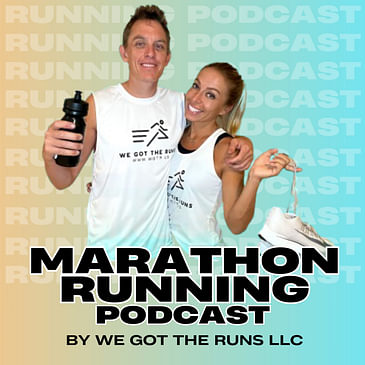Free UCAN sample pack: UCAN.co/mrpUse code MRP for 20% off!
In this episode of the Marathon Running Podcast, we sit down with Coach Rebecca Stephenson to delve into the nuances of running as a master runner. Rebecca, with her wealth of experience as a competitive athlete and coach, sheds light on various aspects crucial for masters' runners.
Firstly, Rebecca emphasizes the importance of adjusting training to remain effective and prevent injury as one ages. She offers insights into modifying training regimens to accommodate changes in recovery time, potential weaknesses, and overall physiological shifts that come with aging.
As someone who not only competes at a high level at 51 but also coaches masters athletes, Rebecca provides key considerations for runners approaching 40 and beyond. She touches upon aspects like managing workload, incorporating adequate recovery periods, and staying attuned to the body's signals.
Discussing the evolving athletic journey, Rebecca highlights how priorities shift for runners as they age. She offers advice to younger runners curious about this transition, emphasizing the significance of embracing change, adjusting goals, and maintaining a holistic approach to training.
Cross-training emerges as a vital component in the training repertoire of masters' runners, according to Rebecca. She elaborates on its benefits, including injury prevention, overall fitness enhancement, and providing a mental break from repetitive running routines. Effective cross-training methods are explored to provide runners with diverse options tailored to their needs.
Rebecca's personal journey serves as a beacon of inspiration, particularly setting her Marathon PR at 49 of a sub 3 after nearly 3 decades of competitive running. She shares strategies and mindset shifts that contributed to this milestone, offering invaluable insights for masters' runners aspiring to achieve their personal bests.
For masters' runners seeking to sustain enjoyment while maintaining performance, Rebecca suggests practical tips and strategies. From prioritizing recovery to embracing flexibility in training plans, she advocates for a balanced approach that fosters longevity in the sport.
Balancing intensity with recovery is a recurring theme in Rebecca's advice for masters' runners. She underscores the pivotal role of recovery in both performance and overall well-being, emphasizing the need for adequate rest and regeneration to support long-term success.
Finally, Rebecca delves into the significance of strength training in a masters' runner's regimen. She discusses how it contributes to injury prevention, enhances overall performance, and addresses age-related declines in muscle mass and strength.
Through this insightful discussion, Coach Rebecca Stephenson provides invaluable guidance for masters' runners navigating the complexities of aging while striving for continued excellence in their running pursuits.
Check out Rebecca at www.conqueringchallenges.com
Support our podcast and check out our RunSwag Tshirts
· Our website: www.marathonrunningpodcast.com
· Our Instagram: @runningpodcast
· Our Amazon Storefront: Amazon Storefront
· Join our Facebook group: SpeedStriders Facebook Group
· Youtube https://www.youtube.com/@RunningPodcast


